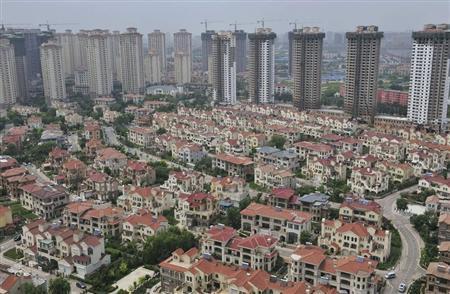Premier Li Keqiang has stressed that there should be a “human focus” to the urbanization drive on which Beijing is pinning many of its hopes for future development. From Jonathan Standing at Reuters:
China’s premier, Li Keqiang, wants his plan to turn more Chinese into city dwellers to be “humanity-centered”, focusing on quality of life and the environment and driven by job creation, the official China Daily newspaper reported on Sunday.
[…] Li, who wrote a doctoral thesis on urbanization in the early 1990s, said the government should first identify areas of consensus, such as the redevelopment of slum communities on the edge of cities, as a base for further steps towards urbanization, the paper said.
“Quality is the key and reform should be the impetus,” the paper quoted Li as saying. “We should be guided by ordinary people’s hopes, and be active and orderly in pushing the process forward.” [Source]
So far, at least, people’s hopes have not always been the foremost priority. At The New York Times, Jonah Kessel shows the predicament of displaced farmers who have lost their old livelihoods and received none of the promised compensation:
Also at the Times, Ian Johnson focuses on a series of self-immolations and other suicides and protests in response to heavy-handed land seizures:
Four years ago, government officials told her sister that Chengdu was expanding into the countryside and that her village had to make way. A farmer who had made the transition to manufacturer, she had built the small workspace with her husband. Now, officials said, it would be torn down.
“So my sister went up to the roof and said, ‘If you want to, tear it down,’ ” Ms. Tang said.
Her voice trailed off as she recalled how her sister poured diesel fuel on herself and after pleading with the demolition crew to leave, set herself alight. She died 16 days later.
Over the past five years, at least 39 farmers have resorted to this drastic form of protest. The figures, pieced together from Chinese news reports and human rights organizations, are a stark reminder of how China’s new wave of urbanization is at times a violent struggle between a powerful state and stubborn farmers — a top-down project that is different from the largely voluntary migration of farmers to cities during the 1980s, ’90s and 2000s. [Source]
Johnson compares these protests with the wave of Tibetan self-immolations over the same period. Although they have won little success in individual cases, he writes, they and other forms of unrest may have been instrumental in the downfall of Sichuan deputy Party secretary Li Chuncheng.
See more on forced evictions from Amnesty, via CDT.








